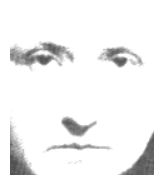Literary Hollywood
When the West
Was Fun
Samuel Marx
(Franklin Watts)

His characterizations have the delicacy and flavor of botulism on rye: Ernest Hemingway, for example, is "the bluff heavy-set titan of American letters." F. Scott Fitzgerald appears with "built-in class and style" and a "male-model look," Sinclair Lewis sported "an unpleasant skin ailment," and Beatrice Kaufman was "that bubbling, tawny-maned woman."
What Marx obviously needs is an ego-trim, an honest editor and, perhaps, a scholarship to the Writer's Summer Workshop in Iowa where he could work on his syntax, adjective phrases, and, if time, his soul.
He makes light of the whoredom of great American literary figures by the Hollywood forcemeat establishment: the screen plays of William Faulkner, S. J. Perelman, Nathanael West, Clifford Odets, Fitzgerald and Hemingway were trimmed so as to make the plots incomprehensible and the lines maudlin. Obviously, Marx sees his career as just another lark-filled time when the West Was Fun and Our Hearts were Young and Fey.
Insanity
File:
The Case of
Mary Todd Lincoln
Mark E. Neely, Jr.,
and R. Gerald McMurtry
(Southern Illinois University Press)
She also collected bolts of cloth, and footstools, and carpets, and was convinced whenever she traveled that attempts were being made to poison her. When she left the sanitarium,
-
...[she] wore a money belt day and night, apparently even when she slept. She accused her sister of stealing from her.
She spent several hours of each day bent over her trunks full of exotic fabrics, the ones from her last European trip basted together to look like dresses so that she could escape paying the required customs duties...Mary slept on only one side her bed in order to leave "the President's place" beside her. Some said that she asked her infrequent visitors whether they didn't hear the president's voice.
This volume is the result of papers opened to the authors by Robert Todd Lincoln Beckwith --- the last Lincoln --- in 1985. Neely and McMurtry suggest that Mary Todd Lincoln was, in her youth, the modern equivalent of a feminist, and despite the criticisms of her insanity trial, was given a fair hearing --- especially given the high-handed laws of the time. Their tale does jump about a bit, since they are hardly artistic in their writings, but --- as with all stories of the famous or near-famous, it does have fascination.
Mistresses:
Reflections of a Life
Luigi Barzini
(Collier)
-
...Foreign residents should never speak and understand the language of the natives --- at least no more than what is strictly indispensable to get along. Everything for them, must be veiled in a fog of incomprehensible sounds. The moment when the mutterings of the cook, the intrigues of the wine merchant, the squabble between servants, the confidences of local friends become crystal clear, the moment when the life of the village is no longer a strange and alien spectacle and the people in it become approximately understandable --- this is the moment to pack and go...
Barzini was a member of the Italian Parliament, a newspaper editor, and a prolific writer (he wrote The Italians). This collection brings together twenty-two essays from his last thirty years. There is about it, as in the essay about entitled "On the Isle of Capri..." a rather wan and carping air. Most of all there is the shocking artistic jealousy that goads him to insult other writers of post-war Italy, including the incomparably sly and funny Curzio Malaparte:
-
He wrote two international bestsellers, Kaputt and La Pelle [The Skin], synthetic works written in bad faith to shock and fascinate millions.
Only an insensitive klutz could so characterize the brilliant description of the callous visit of Clare Booth Luce to post-war Italy (where she sits down to consume a meal of boiled baby) in The Skin, or this description --- from Kaputt --- of the Nazi high command in a steambath in Finland:
-
They were so white, soft, flabby and defenseless, so extraordinarily naked that they seemed to have no skin. Their flesh looked like the flesh of lobsters, pale and rosy, exuding an acid crustacean smell. They had broad chests, their fat breasts were swollen and drooping. Their grim hard faces --- those German faces --- contrasted sharply with the white, flabby, naked limbs, and almost had the appearance of masks. Those naked men sat or lay on the benches like weary corpses. Now and then, laboriously and slowly, they raised their arms to wipe the sweat that dripped from their whitish limbs, sprinkled with yellow freckles that looked like shining scabs...
Barzin died in 1984, this anthology is a memento mori. They could have honored him by serving up less of his humbug and more of his artistry.
1968 - 1972
Denise Levertov
(New Directions)
- now at my breasts (that look timid and ignorant,
that don't look as if milk had flowed from them, years gone by)...
Besides the many poems (some 150 reprinted here) which have nothing much good or bad to recommend them, there's the matter of politics:
-
You who go out on schedule
to kill, do you know
there are eyes that watch you
eyes whose lids you burned off,
that see you eat your steak
and buy your girlflesh
and sell your PX goods
and sleep?
She is not old,
she whose eyes
know you.
She will outlast you
She saw
her five young children
writhe and die;
in that hour
she began to watch you,
she whose eyes are open forever.
Ms. Levertov is very very angry. There is nothing wrong with anger-in-poetry --- look at Sylvia Plath --- but our guess is that the only anger that works in English is of an inner brew, an anger that is turned around, up-side down, aimed --- somewhat --- towards the self, and, if at all possible, tempered by a bit of wry. If she wants to make political points, she well might return to a study of Lord Byron, Alexander Pope, or even Keats, who perfected such within the scope of artful verse.
We have to give her some points for raising herself up from the mainstream of what they laughingly call the American Poetic Establishment --- but we would hope that her anger could find a more centrist technique to convert outsiders to her worthy causes.
Gertrude Stein
(Station Hill Press)
 This is an exact reproduction of the 1932 volume printed in Paris by the author. It consists of twenty-two "word plays" as written by her between 1913 and 1931. It's all very outré and all:
This is an exact reproduction of the 1932 volume printed in Paris by the author. It consists of twenty-two "word plays" as written by her between 1913 and 1931. It's all very outré and all:The dog is at the door.
But not at a door.
A melon can ripen.
There are three things that have a fragrance melon chocolate and chestnut but not as eaten.
Drink dahlias.
We knew that Stein could be spare, but we didn't know she was this spare. Wading through all this is to be equated with spending a summer's weekend broke at the Motel 6 in Bullhead City.
We suspect that the reason Four Saints in Three Acts (included here) is so well-known is because Virgil Thompson wrote some moderately entertaining music for it, which permits one to ignore the words and enjoy the singing --- and we guess the reason The Autobiography of Alice B Toklas was so successful is because it can be understood, comprehended, enjoyed.
Gertrude Stein had great talent as a stylist and as a keeper of a Paris salon of the 20s and 30s --- but Operas & Plays is an eccentric exercise at best.
Green
Dusk
Mildren Weston
( Owl Creek Press)
You could have fooled us. We find more genuine backbone in Roethke's Mad in the wind I wear or this from "The Geranium:"
-
...the two of us, alone, both seedy,
Me breathing booze at her,
She leaning out of her pot toward the window...
than in a whole folio of Weston. In addition, there is a bit of reverse sexism when one claims that a special kind of poetry is best suited for women (or men, for that matter).
The lyric poem is an acquired taste, so one has to work to accept Ms. Weston's lines:
- Our winter time is blest
with the same yearly rest
descending to restore
the soil that bears no more.
It is, as we say, a matter of taste. And our taste, we believe, demands something a tad more exotic than this.
and No More
Andrew H. Malcolm
(Times Books)
Emily was a perfectionist even as a child, and she didn't change during the year-and-a-half that it took to become completely immobile. It is amply shown that those around her (friends, husband, family) had to put up with a cantankerous patient. We read her last journals --- she learned to type by bouncing her head on a pillow contact --- along with Malcolm's somewhat astringent descriptions of a medical profession that will continue to save lives long after everyone (including the patient) wants out. There are many details of what it is like to care for someone with ALS: it goes on and on, and towards the end, the reader wants out too.
The last section deals with the question of euthanasia. After much back-and-forth with doctors, nurses, hospitals, Emily demands (and is finally allowed) to have her respirator unplugged.
We get to see Emily not as a heroine but as an excessively needy woman faced with an overwhelming situation which may be a metaphor, as they say, for the human condition. The big question that comes up is why Emily, and her husband, knowing early on what was going to transpire, did not arrange a Living Will before it was impossible to do so.
Despite the lengthy, often deadly prose, one cannot help but be moved by the final rites, Emily --- and the reader --- waiting impatiently for the saga to end, as it does with a reading from T. S. Eliot's "East Coker:"
-
In my beginning is my end. In succession
Houses rise and fall, crumble, are extended,
Are removed, destroyed, restored, or in their place
Is an open field, or a factory, or a by-pass...
In my beginning is my end. Now the light falls
Across the open field, leaving the deep lane
Shuttered with branches, dark in the afternoon.